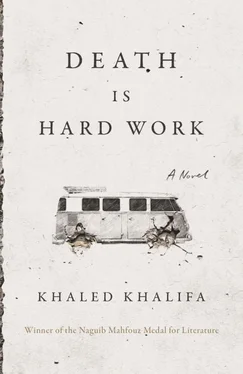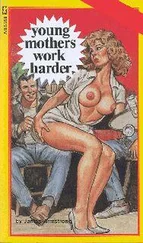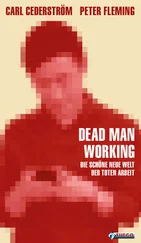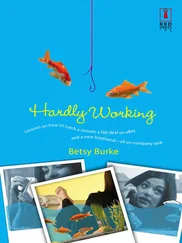The smell of incense wafted through the entrance hall where they stood, waiting for permission to meet with the prince. The masked guards didn’t say a word, as if they were made of wood. Fatima asked them to show her where the bathroom was, and neither their faces nor their fingers, still resting on the triggers of their rifles, moved. Hussein tried to show off his military knowledge and said they were Dushka machine guns, but one glance from a guard was enough to shut him up. They heard a murmur behind a huge door. The only cheering thing about their situation was that the room was very well heated. Luxury was evident in every detail of the villa. Soon the murmurs got closer and a group of Bedouin men emerged from behind the door, thanking the prince and wishing him long life.
After a few more minutes a tall man opened the door for them. It was a kingdom of masks, no faces at all, no details, and no features. Fatima was the most afraid; she hastily adjusted her head covering so it concealed half her face as well as her hair. In her shabby clothes she looked like a poor woman. Exhaustion from the journey showed clearly on the siblings’ faces, as if they had traveled five thousand kilometers rather than two hundred and fifty, a journey that ought to have taken two and a half hours at most.
Bolbol was astonished to see Fatima kneel down to greet the prince in imitation of the actresses in historical dramas. The prince, who was also masked and wearing an embroidered robe in a sort of Abbasid style, asked them their business. His tone betrayed his irritation, and from his ponderous accent they guessed he was Afghan or Chechen. One of the guards entered, gave them back their identity cards, whispered something in the commander’s ear, and left. Nonchalantly, and in a stately formal Arabic that almost made Bolbol burst out laughing, Hussein stated briefly that they needed permission to proceed so they could get on with burying their father’s body before it rotted away entirely. Hussein had been surprised at the prince’s question; surely he must know the rules governing burial of the dead according to Sharia? Hussein looked at Bolbol for help, but Bolbol had nothing to say, only telling himself that the insults would never end; the children of the revolution weren’t everywhere as his father had said. Here the three of them were, in a strange land, surrounded by foreigners, and they had no idea why they weren’t being allowed to bury their father’s body.
Hussein went on to mouth a few courtesies, resorting now to the sayings in his beloved almanacs. He spoke about honoring the dead through their burial, but all were astonished when the prince told the siblings, quietly but angrily, that it was suitable for a Muslim to be buried anywhere within the nation-spanning land of Islam, and last wishes like Abdel Latif’s were tantamount to heretical innovation. Hussein heartily agreed with him; Bolbol knew Hussein’s most fervent wish was to be rid of the corpse at any price. The prince went on to enumerate all the Companions of the Prophet who had been buried away from their homelands. Bolbol tried to speak, but the prince gestured to him to be quiet. Then he sprang a question on Hussein about the number of rakʿat performed in the prayer for the dead; he asked them about their sect, and they explained that they were from Anabiya… then something unexpected occurred. Dozens of missiles thundered nearby. The prince rose and left quickly, leaving the family in his large hall. They wasted no time and hurried out behind him. Hussein waved at Bolbol to go back to the minibus with Fatima. An odd current was running through the people in the building. Hussein told the guards that the prince had given the family permission to leave; they raised no objection, indeed didn’t seem to care one way or the other. The bombs were still falling nearby; one of them must even have hit near the villa, for they felt it quaking. The battle was right on the other side of the road but seemed just as likely to intensify and move even closer. The siblings quickly climbed into Hussein’s minibus. In their hurry they barely noticed that the vehicle had been thoroughly searched, papers and CDs flung everywhere. They simply made sure their identity cards were safely with them and then sped off without turning on the headlights.
Yet Hussein slowed down again after only a few kilometers. He told the others he had lost the road. Raqqa was nearby, but he wasn’t sure which junction would take them to Aleppo. The prince’s villa and his village had disappeared from view, but they could still hear shooting and explosions. Hussein felt they should stop for the few hours left until dawn. They needed some sort of guide if they were going to find the road, and anyway—as they were all well aware—traveling with a corpse in the car at this time of night would just arouse more suspicion. He chose a spot near to a number of crossroads and turned off the engine, and silence reigned once more, broken only by the barking of a nearby dog.
It was midnight. Hussein lay down in his seat and closed his eyes. Fatima tried to cover her face. No one wanted to look at the corpse. It had become a plague upon them, nothing less. Bolbol could no longer object if Hussein suggested burying it here, by the side of this unknown road. He heard Hussein snoring for a short while and had no choice but to look out at the night. He tried to get some fresh air and opened the door to step outside, but the intense cold bit into his limbs, and he stayed inside the bus. Their heavy heads were the natural result of the stench that blew over them. They were breathing in death as no one had ever breathed in the death of a loved one; it permeated their skins and coursed through their blood, and Bolbol wondered idly if all three of them had gone completely moldy by now. This was all that remained of his father: decay and pus. Abdel Latif was done with dreams, and these thunderstorms were bidding him farewell on his final journey—a fitting tribute to a misguided warrior. Till his last moment, he had remained proud of all his defeats. He hadn’t known a single moment of victory, but he had been intoxicated by it all the same, expecting it to come as inevitably as the fate that brought him to where he was now.
The three of them were unspeakably weary. None of them could bear to even look at the others. Fatima was lying on the floor, her face as blank and wide-eyed as a seal’s. She was trying to piece together the fragments of their childhood that kept surfacing within her memory, but Hussein’s voice interrupted her scattered thoughts. He asked Bolbol, “And afterward?”
It was true; Bolbol had no idea as to what would happen afterward and told Hussein as much. The drumming rain increased their desolation. Hussein said they had to put the body in the back of the bus. He couldn’t quite manage to admit that the smell was making him dizzy. They prodded Fatima, who closed her eyes again after her few words were ignored. They arranged a space on the back seat, and when they began to move the body, they were astonished at how heavy it was, and how many more splits had appeared in its skin, all leaking yellow pus. They opened the door for a few seconds and immediately saw a pack of wild dogs rushing toward them. Howls filled the area, and they slammed the door to escape this almost unreal ferocity. The dogs leaped at the bus, attacking it from all sides. They bared their fangs, utterly enraged, and Bolbol had the feeling they would never leave them in peace again. He suggested to Hussein that they drive away and find somewhere safe and inhabited to take shelter. Hussein didn’t reply. He was staring in fascination at the dog currently trying to scratch the windshield. Hussein laughed and began to tease the dog, which only became more furious. Bolbol was disgusted and frustrated. He knew that if the dogs reached the corpse they would tear it to pieces, and he began to feel genuine terror for his father, now reduced to little more than some carrion to be lusted after by wild animals. This was surely the utmost level of decay. After half an hour the dogs had only become more frantic, new ones had arrived, and now a whole pack was laying siege to the minibus.
Читать дальше












